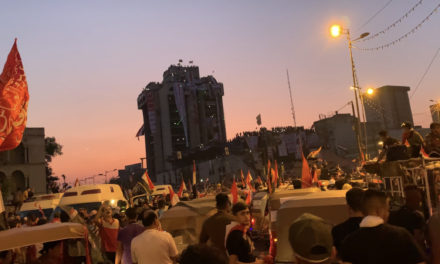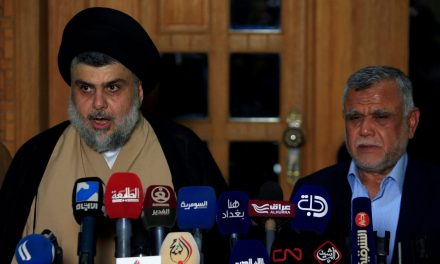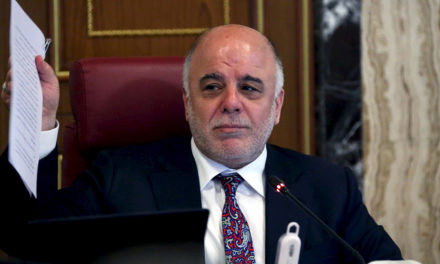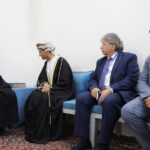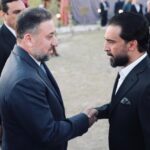The resignation of Prime Minister Adil Abd Al-Mahdi did not ease the political crisis Iraq started facing after protests erupted last fall. Many names were circulating as Abd Al-Mahdi’s possible replacement, but with the political factions not being able to agree on an alternative and many wishing for him to keep his position until 2022, Iraqis still do not have a new government.
After months of deliberations, the outcome was the nomination of Mohammed Allawi, a former telecommunications minister whom many considered a technocrat. Allawi had to withdraw his nomination due to pressure from the political elite and the complexities of the negotiation process. Following his withdrawal, President Barham Salih designated Adnan Al-Zurfi, the former Governor of Najaf to form the next government. Zurfi who has a solid base in Najaf became a controversial candidate as the groups representing the political wing of the Popular Mobilization Forces (PMF) accused him of being U.S.-aligned, questioning the legitimacy of his nomination as a tactic to close the road of government formation on him.
One positive result of Salih’s nomination of Zurfi, despite the absence of consensus amongst the political elite, was putting pressure on the different factions to finalize their choice.
Mustafa Al-Kadhimi was amongst the first names to be proposed after Abd Al-Mahdi resigned. Nevertheless, it seems that the different factions who wanted to nominate him did not want to propose his name early on, in order to avoid the fate of what became known as name ‘being burned’, which is the outcome of proposing a candidate’s name in the wrong time and having to withdraw it early from the process. However, by the time Kadhimi signed Salih’s formal request to form a new government, there seemed to be an overarching consensus over his nomination, something that was absent in the last few months following the resignation of Abd Al-Mahdi.
The initial support that Kadhimi gained from the different political factions exists alongside two opposing public narratives about the man, with one accusing him of being anti-PMF and too close to the U.S., and the other being an exile Iraqi who has strong ties with Iran and is ready to make deals with them. While this will not make his task necessarily easier, the disagreement over Kadhimi’s stance could be an indicator that he is a moderate figure who is willing to engage in restoring the vital balance Iraq needs, which the U.S. disrupted through the assassination of General Qassim Soleimani and Deputy Head of PMF Abu Mahdi Al-Muhandis.
Another point of strength for Kadhimi is his performance as the head of the Iraqi National Intelligence Service. Kadhimi was successful in ‘cleaning up the service’ and making it effective at a very critical juncture in Iraq’s history, when the fight against Da’ish was at its peak, making a name for himself for being professional and focused. The public does not associate his name with corruption, which by itself is a feat with Iraq’s high number of corrupt political figures. He managed to keep a minimal appearance on media, which is in line with the security role he is playing and in contrast with many other security officials who do not shy away from capitalizing politically from security achievements through repeated media appearances to increase their influence and enhance their chances of a potential run for office in the near future.
Kadhimi’s experience in security and the multiple diplomatic roles he has taken on will also give him an advantage. In Iraq, security remains a major concern and it is often connected to internal and external balancing acts that need to be maintained through constant negotiations and settlements. Having said that, it is easy for leaders to engage in constant politicking and allow themselves to fall into the security quagmire of Iraq at the expense of the different areas of governance. Iraq is in a dire situation and much focus is needed on public health and economy. There is a huge risk that Iraq witnesses a free-fall in the number of infections with COVID-19, as the unforgiving pandemic wrecks the global oil market, making Iraq’s economy extremely vulnerable.
There are many pitfalls that Kadhimi needs to avoid, and Iraq’s recent history can be a good teacher for those who are willing to learn. However, the fate of Mustafa Al-Kadhimi’s nomination is strongly tied to the political developments that he does not necessarily control, as much as he is a skilled negotiator. As it is the norm, the prime minister-designate will be under immense pressure from the political factions when forming his government whose upcoming support will be conditional. Therefore, it is unrealistic to expect him to deviate from the dynamics of consociationalism, considering the 2018 elections had no clear winner, resulting in a more fragmented political scene than usual.
Collectively speaking, if the political factions do not reach an agreement over the formation of the government, they will exacerbate the crises facing the country. As bad as the situation in Iraq is currently, it can get much worse.
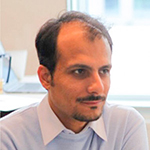
Muhammad Al-Waeli
Muhammad Al-Waeli is a Ph.D. candidate in management focusing on leadership, reform, and institutions in Iraq.



